Rising ACA Insurance Costs: Comparing Private Health Insurance for Employee-Employer Benefits
The Affordable Care Act (ACA) has significantly transformed the healthcare landscape in the United States. As ACA insurance costs continue to rise, employers are exploring alternative options, such as private health insurance, to provide employee benefits. In this analysis, we will assess the financial impact of ACA premiums on employee-employer benefits and compare them with the benefits offered by private health insurance. By examining various factors, including cost, coverage options, network accessibility, customization, provider choices, employee satisfaction, and long-term viability, we aim to provide insights into the advantages and considerations of private health insurance for employers and employees.
Cost Analysis: Assessing the Financial Impact of ACA Premiums on Employee-Employer Benefits
ACA premiums play a significant role in determining the financial burden on employers and employees. Proposed median premium increases of 10% in ACA Marketplaces can strain employers' budgets, especially small businesses. Employers may need to reallocate resources or increase employee contributions to offset rising healthcare costs. The cost analysis considers the potential implications of higher ACA premiums on employee-employer cost-sharing dynamics and overall affordability of employee health insurance.
Coverage Options: Contrasting the Benefits and Services Provided by Private Health Insurance for Employees
Private health insurance offers employers a range of coverage options beyond what is available through the ACA. These options often include more extensive benefits and services, such as access to a broader network of providers, specialized treatments, and additional wellness programs. Employers can tailor private health insurance plans to better meet the specific needs of their employees, providing a potentially higher level of coverage compared to ACA plans.
Network Accessibility: Evaluating the Provider Networks of Private Health Insurance Plans for Employees
One critical aspect of employee health insurance is the availability and accessibility of healthcare providers. Private health insurance plans often provide access to larger networks of doctors, specialists, and hospitals compared to ACA plans. This broader network can offer employees more choices and flexibility when seeking medical care. However, employers must consider the potential trade-off between network size and the associated costs when selecting private health insurance options.
Customization and Flexibility: Comparing the Degree of Plan Personalization in Private Health Insurance for Employees
Private health insurance plans generally offer greater customization and flexibility compared to ACA plans. Employers can work with insurers to design benefit packages tailored to the unique needs of their employees. This customization may include selecting specific coverage options, deductible levels, and wellness programs. The ability to customize plans provides employers with greater control over the cost and design of employee benefits, resulting in potentially higher employee satisfaction.
Provider Choices: Analyzing the Freedom to Choose Healthcare Providers for Employees under Private Health Insurance
Private health insurance often grants employees more freedom to choose healthcare providers. Unlike ACA plans, which may have narrower networks and require referrals for specialized care, private health insurance allows employees to select their preferred doctors and hospitals without referral restrictions. This freedom to choose healthcare providers can enhance employee satisfaction by providing a more personalized healthcare experience.
Employee Satisfaction: Exploring the Level of Contentment with Employee Benefits Provided by Private Health Insurance
Employee satisfaction is a crucial consideration for employers when selecting health insurance options. Private health insurance plans, with their greater coverage options, customization, network accessibility, and provider choices, can contribute to higher employee satisfaction. Employees may perceive private health insurance as providing better value, improved access to care, and more comprehensive coverage. Higher employee satisfaction can positively impact recruitment, retention, and overall workplace morale.
Future Considerations: Predicting the Long-Term Viability and Sustainability of Private Health Insurance for Employee-Employer Benefits
When evaluating private health insurance options, employers must consider the long-term viability and sustainability of these plans. Factors such as cost stability, insurer reputation, market dynamics, and regulatory changes can influence the sustainability of private health insurance offerings. Employers need to assess the potential risks and benefits associated with private health insurance, ensuring the stability and continuity of employee benefits over time.
Conclusion:
As ACA insurance costs rise, employers are increasingly comparing private health insurance options for employee-employer benefits. A comprehensive analysis encompassing cost, coverage options, network accessibility, customization, provider choices, employee satisfaction, and long-term viability is essential. Private health insurance offers employers greater flexibility, customization, and potentially improved employee satisfaction. However, employers must carefully evaluate the financial implications and long-term sustainability of private health insurance options. By considering these factors, employers can make informed decisions about the most suitable health insurance options to provide comprehensive and cost-effective benefits to their employees.

